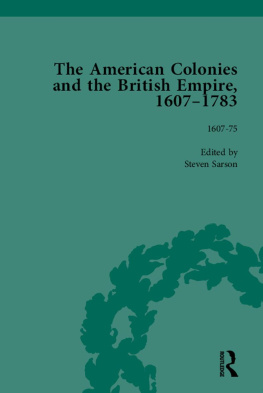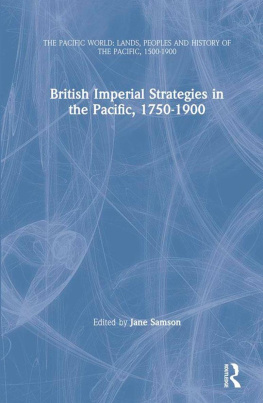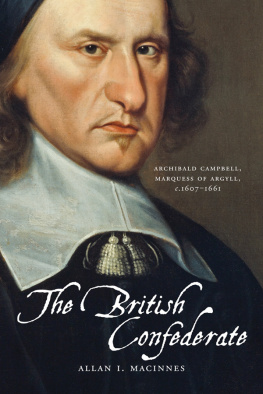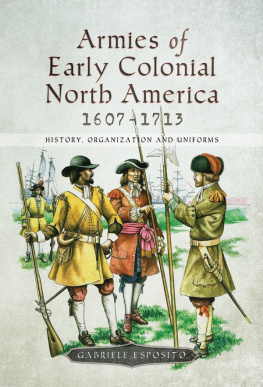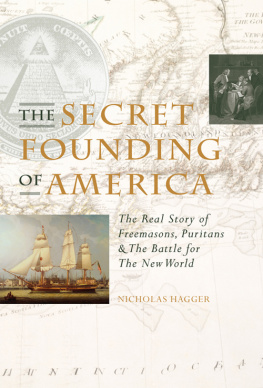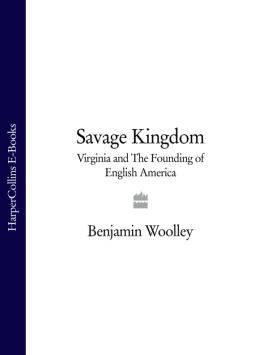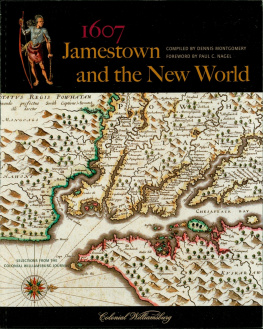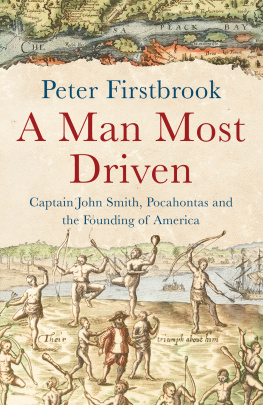First published 2010 by Pickering & Chatto (Publishers) Limited
Published 2016 by Routledge
2 Park Square, Milton Park, Abingdon, Oxon OX14 4RN
711 Third Avenue, New York, NY 10017, USA
Routledge is an imprint of the Taylor & Francis Group, an informa business
Copyright Taylor & Francis 2010
Copyright Editorial material Steven Sarson 2010
All rights reserved, including those of translation into foreign languages. No part of this book may be reprinted or reproduced or utilised in any form or by any electronic, mechanical, or other means, now known or hereafter invented, including photocopying and recording, or in any information storage or retrieval system, without permission in writing from the publishers.
Notice:
Product or corporate names may be trademarks or registered trademarks, and are used only for identification and explanation without intent to infringe.
BRITISH LIBRARY CATALOGUING IN PUBLICATION DATA
The American colonies and the British Empire, 16071783.
Part 1, Volumes 14.
1. United States History Colonial period, ca. 16001775.
2. Great Britain Colonies America.
I. Sarson, Steven. II. Greene, Jack P.
973.2-dc22
ISBN-13: 978-1-85196-948-7 (set)
Typeset by Pickering & Chatto (Publishers) Limited
The Historiography of the Early British Empire
In the decades following World War II, historians such as A. L. Rowse, K. G. Davies, Glyndwr Williams, David Beers Quinn and others kept British historical interest in the early American empire alive. Or it might be more accurate to say that they kept imperial history on life support, as there was widespread historiographical neglect of empire in general and the American empire in particular. This was perhaps, for some, a period of wilful forgetfulness of the embarrassing fact of the Empires recent collapse. For others it was, no doubt, a period of post-imperial guilt, of embarrassment over the many atrocities committed in the name of empire. Whatever the case, imperial history of all kinds was marginalized during those years, categorized as African, American, Asian and Australasian history, pointedly not as British history.
Just over three decades ago, however, J. G. A. Pocock, a historian of Britain who, perhaps significantly, was born in New Zealand and made his career in the United States, pleaded for a new British history that included Scotland, Wales, Ireland and British colonies, empire and commonwealth overseas. Other historians took heed, and a positive response to Pococks plea gathered pace in the next decade or so and emerged unmistakeably as a historiographical movement in the last decade or so. The movement has taken two distinct but complementary and sometimes overlapping directions: scholarship on overseas colonies and empire as part of a greater British history and scholarship on the impacts of overseas colonies and empire within the British Isles. These themes have come together in what is now commonly called British-Atlantic history, encompassing Britain, its American and Caribbean colonies, and its African and Atlantic trading interests. There is also a broader Atlantic history encompassing other European countries, colonies and inter-continental activities as well.
Reflecting these trends, the 1990s saw publication of a Cambridge Illustrated History of the British Empire (1996) and a five-volume Oxford History of the British Empire series (1998), with no fewer than seven thematic companion volumes published to date. Blackwell has since produced a Companion to the American Revolution (2000) and another to Colonial America (2003), while others have published more specialized essay collections, including Jack P. Greene and J. R. Pole (eds), Colonial British America: Essays in the New History of the Early Modern Era (1984); H. T. Dickinson (ed.), Britain and the American Revolution (1998); David Armitage and Michael J. Braddick (eds), The British Atlantic World, 15001800 (2002); Julie Flavell and Stephen Conway (eds), Britain and America Go to War: The Impact of War and Warfare in Anglo-America, 17541815 (2004); and Christine Daniels and Michael V. Kennedy (eds), Negotiated Empires: Centres and Peripheries in the Americas, 15001820 (2002), with comparative perspectives on different Euro-American empires. There is a growing multitude of monographs, including, to name only the most recent and eminent, P. J. Marshall, The Making and Unmaking of Empires: Britain, India, and America c. 17501783 (2005); B. Porter, The Absent-Minded Imperialists: Empire, Society, and Culture in Britain (2004) and Empire and Superempire: Britain, America and the World (2006); and Sir John Elliott, Empires of the Atlantic World: Britain and Spain in America, 14921830 (2006), all analysing empire or empires from the broadest possible perspectives and connecting imperial and domestic histories. Linda Colley, Captives: Britain, Empire, and the World, 16001850 (2002); and David Cannadine, Ornamentalism: How the British Saw Their Empire (2002) examine empire broadly as well, but do so through the perspectives of particular people and ideas.
Studies of aspects of empire are currently as popular as these more inclusive histories. Roger Anstey and others more recently have produced scores of books and articles on the slave trade, for example, and, in time for the bicentenary of British slave trade abolition in 2007, Simon Schama produced Rough Crossings: Britain, the Slaves, and the American Revolution (2005); and Christopher Brown gave us Moral Capital: Foundations of British Abolitionism (2006). Testifying to a rising popular as well as academic appetite for imperial history, Schama devoted an entire episode of his television series, A History of Britain, to the early empire and another to the later one, and he subtitled volume three of the accompanying book trilogy The Fate of Empire, 17762000 (2003). Niall Ferguson did a whole television series and a companion book on the subject of Empire: How Britain Made the Modern World (2004). Bestsellers such as Dava Sobels Longitude (1995) and Giles Miltons Nathaniels Nutmeg (1999) and Big Chief Elizabeth (2000) also have empire as central themes. The quality as well as the quantity of these recent publications on British imperial history suggests that the subject has entered something of a golden age.
This rising interest in imperial history, especially perhaps its popular dimension, is undoubtedly inspired in part by the reconfigurations of British national identity required by the devolution of political authority to Northern Ireland, Scotland and Wales, by European integration, and by the multiracial and multicultural character of modern Britain that is itself a legacy of empire. Equally, though, there is an academic dynamic behind the recent rise of this new imperial history. The new British histories of empire may have distinct historiographical origins from older histories of Britains former colonies, but have nonetheless recently and very productively dovetailed with them. Historians of North America and the Caribbean, for example, have produced mountains of books and articles on the New World, although by the 1980s a generations worth of brilliant but microscopic scholarship on the particularities of colonial history had fragmented the field into an apparently formless mosaic. That very problem, however, inspired the writing of several ingenious syntheses, most notably Bernard Bailyn,

